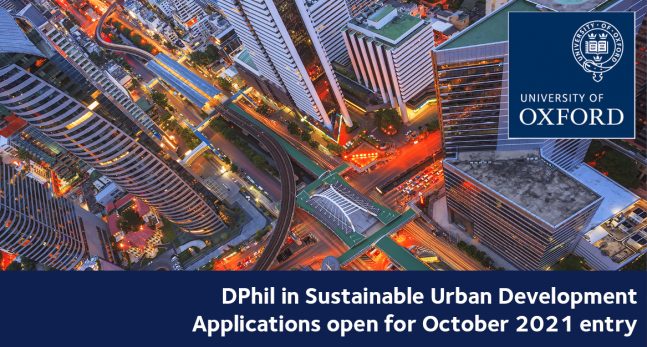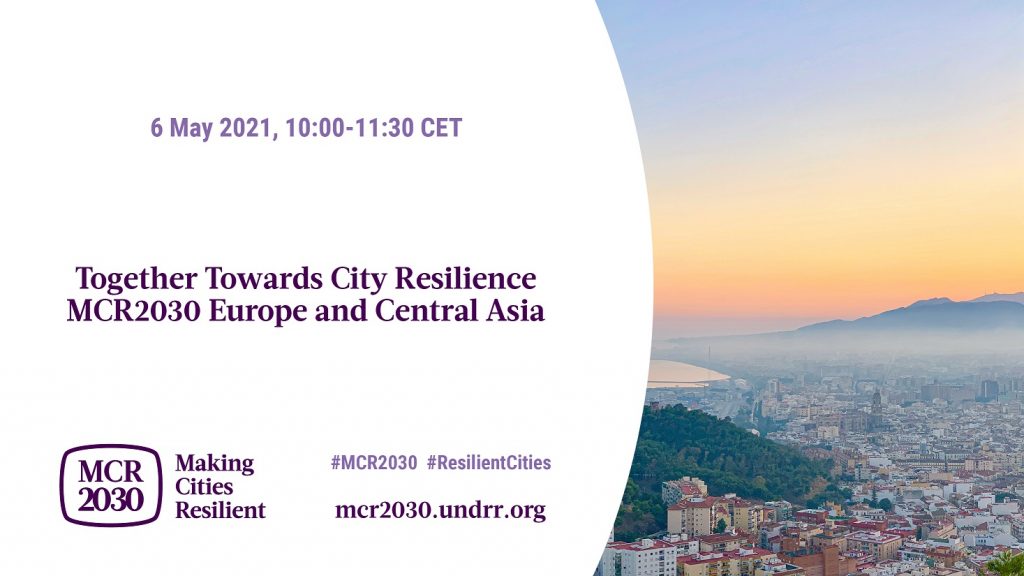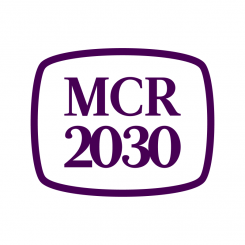SHAPE THE FUTURE OF NEXT GENERATION INFRASTRUCTURE
Well-planned infrastructure strengthens the resiliency, sustainability, and the economic viability and livability of communities. Offered by the University of Washington Department of Urban Design and Planning, the Master of Infrastructure Planning and Management online degree prepares you to lead the development of the next generation of critical infrastructure systems — improving security, and accessibility. Gain a broad understanding of the complexity and the interdependencies between infrastructure systems — communications, public health, water, energy, food and transportation — with a final project that allows you to showcase your acquired knowledge about an infrastructure issue of your choice.
PROGRAM FEATURES
- In-depth courses covering key topics such as infrastructure finance, emergency management, green infrastructure practices, urban mobility, climate change, urban informatics, geographic information systems, social equity and inclusion, and community resilience
- Examination of key infrastructure sectors and their essential components through the lens of systems thinking
- All-hazards risk management approach, shaped by faculty and industry experts, that complements a traditional emergency management focus, encompassing threats from natural hazards, deterioration, cyber penetrations, and climate change
- Instruction based on case studies and problem solving to strengthen critical thinking and leadership skills
- Increased focus on use of data analysis tools and systems to improve decision making and strategic planning
CONVENIENT ONLINE FORMAT
Take advantage of our robust online learning platform to complete your degree no matter where you live or work. This 100% online program is specifically designed with working professionals in mind, allowing those in a global mobile workforce to earn their graduate degree. Study with UW faculty and industry practitioners who offer diverse expertise in their respective fields.
DPhil in Sustainable Urban Development
A flexible, part-time doctoral programme over four to eight years.
Starting October 2021.
The Doctor of Philosophy (DPhil) provides outstanding graduates with an opportunity to pursue in-depth and rigorous research into the pressing challenges of urban sustainability.
You will receive guidance from your University supervisor, be encouraged to develop your independent research skills through our doctoral training initiatives and have full access to Oxford’s research facilities and online resources.
Potential supervisors are available from a range of specialists across the University of Oxford.
Find out more about the doctoral programme.
The Making Cities Resilient 2030 (MCR2030) initiative responds to the growing need to boost resilience at the local level. Crises such as COVID-19 and climate change remind us that managing disaster risk is everyone’s business, in which local governments play an instrumental role. Building resilience of local governments through robust risk governance structures and processes is a critical step to ensure that impacts are mitigated and measures are taken at the most localised and disaggregated level.
The United Nations Office for Disaster Risk Reduction (UNDRR) Regional Office for Europe, in partnership with ICLEI Europe – Local Governments for Sustainability, invite you to this regional webinar, which sets in motion a decade for city resilience through the implementation of the MCR2030 initiative across the Europe and Central Asia region.
This event brings to light cities at various stages of their resilience journey. The city experiences aim to showcase how, through robust risk knowledge, planning and implementation, city resilience can be strengthened in a spirit of peer learning and partnership central to the MCR2030 initiative.
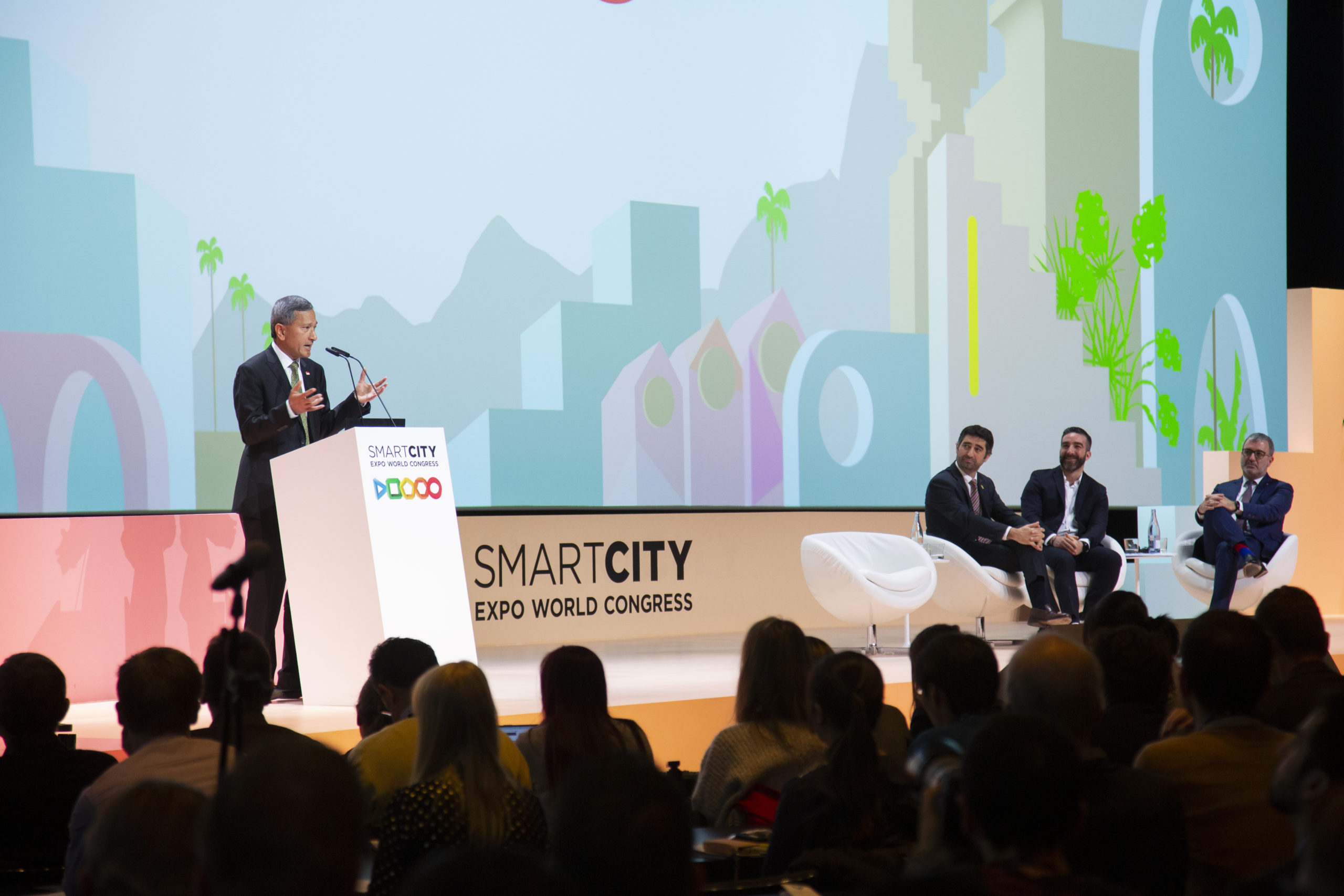
Smart City Expo World Congress is the leading event for cities, pushing to create a better urban life by empowering citizens and enabling more efficient and inclusive urban services. Since 2011, it has been at the vanguard of change for cities and has developed a groundbreaking model of advocacy for a better urban world.
 After a year of pandemic, SCEWC21 celebrates its 10th anniversary with the physical event coming back to Barcelona and a parallel digital program broadcast by Tomorrow.City. The event will gather leading international experts and 400 exhibiting companies to share knowledge and tackle the many challenges involved in urban transformation.
After a year of pandemic, SCEWC21 celebrates its 10th anniversary with the physical event coming back to Barcelona and a parallel digital program broadcast by Tomorrow.City. The event will gather leading international experts and 400 exhibiting companies to share knowledge and tackle the many challenges involved in urban transformation.
To cover the many fields involved, the congress program will be structured in eight themes, Enabling Technologies, Energy & Environment, Tomorrow.Mobility World Congress, Governance, Living & Inclusion, Economy, Infrastructure & Buildings, and Safety & Security. and will feature topics such as Artificial Intelligence, Digital Twins, New Energy Models, Green Spaces, Low Carbon, Micro & Shared Mobility, Cross-sector Governance, Citizen Engagement, Critical Infrastructures, City Ethics & Privacy, Urban Safety and Emergency Response.
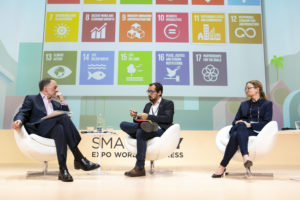 Cross industry collaboration has been one of the goals of SCEWC since its inception. The SCEWC 2021 edition will strengthen its role as a world platform for knowledge sharing and widen its reach by hosting two new events: Tomorrow.Mobility and PUZZLE X. Tomorrow.Mobility will focus on promoting the design and adoption of new sustainable urban mobility models. PUZZLE X aims to grasp the potential of Frontier materials to solve some of the challenges that society is facing. The initiative includes a yearly event and a venture builder incubator to support Materials Deep Tech startups, attract investment and build a global ecosystem.
Cross industry collaboration has been one of the goals of SCEWC since its inception. The SCEWC 2021 edition will strengthen its role as a world platform for knowledge sharing and widen its reach by hosting two new events: Tomorrow.Mobility and PUZZLE X. Tomorrow.Mobility will focus on promoting the design and adoption of new sustainable urban mobility models. PUZZLE X aims to grasp the potential of Frontier materials to solve some of the challenges that society is facing. The initiative includes a yearly event and a venture builder incubator to support Materials Deep Tech startups, attract investment and build a global ecosystem.
The annual Summit of the International Transport Forum is the world’s largest gathering of transport ministers and the premier global transport policy event.
Every May, ministers with responsibility for transport, business leaders, heads of international organisations, parliamentarians and policymakers, representatives of business associations and leading researchers meet for three days in Leipzig, Germany, to discuss the future of transport through the prism of a strategic topic.
Summit participation has grown to over 1200 participants from more than 80 countries, well beyond the 66 member countries of the ITF. It increasingly attracts business participants, with CEOs joining high-level discussions and companies presenting their work in the Summit exhibition or sponsoring the event. The annual meeting of the ITF Corporate Partnership Board is held as part of the Summit
The 2024 ITF Summit on Greening Transport: Keeping Focus in Times of Crisis will take place from 22 to 24 May in Leipzig, Germany, under the Presidency of Lithuania, with Chile and Azerbaijan as first and second Vice Presidents, respectively.
The 2024 Summit will examine the transport sector’s role in environmental sustainability, and assess the impacts of climate, health and geopolitical crises in this context. With transport responsible for 30% of global CO2 emissions and climate change leading to extreme weather events, the urgency for carbon emission reduction is pivotal. The Covid-19 pandemic and geopolitical conflicts have disrupted the transport sector and supply chains, contributing to an energy crisis and environmental challenges. Decision makers are urged to maintain a long-term policy focus amid these crises, leveraging opportunities like cleaner and automated vehicles and digital innovation to promote a greener and more resilient transport sector. Simultaneously, evaluating the environmental risks associated with increased digitalisation is increasingly crucial.




